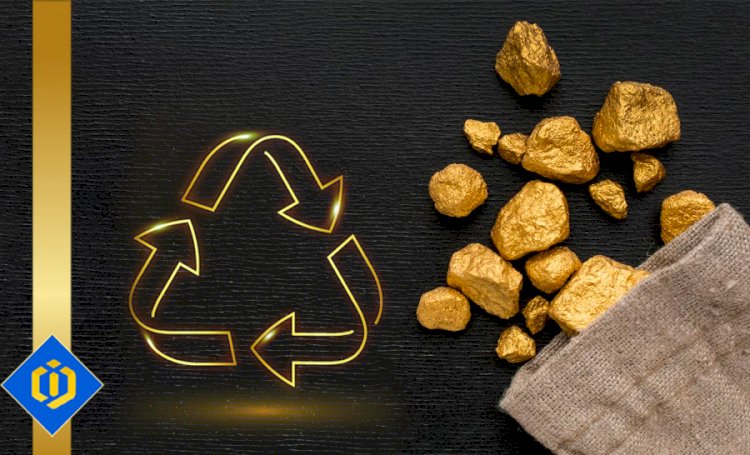From Scrap to Treasure: Exploring the Secrets of the Profitable Gold Recycling Trade

Gold has long been regarded as a valuable and sought-after precious metal. Its scarcity and enduring allure make it a symbol of wealth and luxury. While gold mining remains a significant source of the precious metal, there is another lucrative avenue that has gained prominence in recent years: gold recycling. In this article, we will explore the secrets of the profitable gold recycling trade, delving into the process, benefits, and the environmental impact of this industry.
- The Process of Gold Recycling:
Gold recycling involves the extraction and recovery of gold from various sources, including electronic waste, jewelry, and industrial scraps. The process typically begins with the collection and sorting of gold-bearing materials. These materials undergo a series of steps to separate the gold from other metals and impurities.
The first step is the mechanical processing, which involves crushing and shredding the materials to reduce them to a manageable size. This is followed by chemical treatments, such as leaching or smelting, to dissolve or separate the gold from other metals. Finally, the recovered gold goes through refining processes to achieve the desired purity level.
- Benefits of Gold Recycling:
Gold recycling offers several significant benefits to both the environment and the economy. One of the foremost advantages is the conservation of natural resources. Gold mining often involves the extraction of large quantities of ore, which can have detrimental effects on ecosystems and cause habitat destruction. By recycling gold, the need for new mining operations is reduced, leading to conservation of land and water resources.
Additionally, gold recycling helps to mitigate the environmental impact of electronic waste. Electronic devices, such as smartphones and computers, contain small amounts of gold in their circuit boards and connectors. When these devices are discarded, they contribute to the growing problem of electronic waste. By recycling gold from electronic waste, valuable metals are recovered, reducing the need for new mining and preventing the release of potentially harmful substances into the environment.
From an economic perspective, gold recycling contributes to job creation and revenue generation. The recycling industry requires skilled labor for collection, sorting, processing, and refining operations. Moreover, the recovered gold can be sold and reintroduced into the market, supporting the global gold trade and providing economic opportunities for businesses and individuals involved in the recycling process.
- Challenges in Gold Recycling:
Despite its profitability, the gold recycling trade faces certain challenges. One of the primary obstacles is the complexity of the recycling process. Recovering gold from various sources requires specialized knowledge, equipment, and facilities. The presence of other metals and impurities in the gold-bearing materials can make the separation and refining processes more intricate, requiring advanced technologies and techniques.
Another challenge lies in the collection and sourcing of gold-bearing materials. While electronic waste provides a significant source of gold, accessing and procuring these materials can be challenging due to regulations, logistics, and competition. Establishing efficient collection networks and partnerships with electronic waste management companies is essential for the success of gold recycling businesses.
- Environmental Impact and Sustainability:
Gold recycling is often hailed as a sustainable alternative to traditional gold mining. By reducing the demand for new mining operations, it helps protect ecosystems and minimize the release of pollutants into the environment. However, it is important to note that the recycling process itself can have environmental implications.
Chemical treatments and refining processes involved in gold recycling can generate hazardous waste and emissions. Proper management and adherence to environmental regulations are crucial to mitigate these impacts. The adoption of environmentally friendly technologies and practices, such as using non-toxic chemicals and implementing efficient waste management systems, can further enhance the sustainability of the gold recycling trade.
The profitable gold recycling trade offers a sustainable and economically viable solution to meet the demand for gold while minimizing the environmental impact of traditional mining. By recovering gold from various sources, including electronic waste, this industry plays a critical role in conserving natural resources, reducing electronic waste, and supporting the global gold trade.
While challenges exist in the recycling process, technological advancements and the commitment to sustainable practices can overcome these hurdles. As the world becomes more aware of the importance of environmental sustainability, the gold recycling trade is poised to continue its growth and contribute to a more sustainable and responsible gold industry.
Author: Pooyan Ghamari, Swiss Economist & Visionary

 content-team
content-team 






















